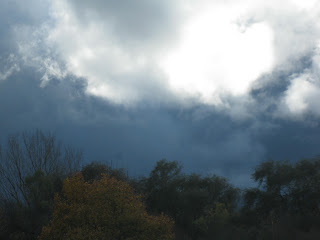Monastic life offers many insights. Like the value of sacrifice, the benefits of silence, and the comfort of community. It also taught me that each day is a new day, a chance to make another new beginning.
For many of us, new beginnings come with New Year's Day. A new calendar and a new number somehow sparks thoughts of turning over a new leaf. Resolutions are decided and commitments are made. But why do we limit ourselves to one day a year?
In the monastery, every day offered a new beginning. It came with the concept of metanoia, conversion, turning myself from what I am to what I desire to be. We focused on metanoia, which means literally turning around, moving from facing one direction into facing a different one. Metanoia is a concept that comes from the desert Ammas and Abbas. It taught me that every day I can begin again.
I continue the practice of Metanoia, because it teaches me that life need not be dull. I do not have to accomplish my desires and my dreams all in one day. I can work at it a little each day, in a natural and gentle way. For metanoia is organic, and speaks to the fact that life is a journey. And on a journey, each day offers new beginnings.

























